Students in 2024 have the option to enroll online or in-person while pursuing a degree in audio engineering and music production. It is a growing field that opens the doors to many different types of opportunities – all having to do with sound design. But with the way the world is now, you want to know that you can feel safe when you study. Along with each incredible school and learning facility, we will see what safety measures are being taken to ensure your health.
Liberty University – 100% online programs at associate, bachelor's, master's, and doctoral level.
Get StartedFrom creating musical scores in movies to orchestrating sound systems for live events to designing beats for songs, audio engineers focus on the science behind the art of music, many of which attend the best audio engineering schools.
Possible career pathways include a recording engineer, sound designer, creating video game audio content, television show scoring, location recording, live sound reinforcement, and audio system maintenance. Choosing the right music degree can help you determine where you want to take your music career and what school to choose.
For 2024, we’ve reevaluated each school and added information to relevant audio engineering programs. We also removed the Art Institutes from this list as many campuses have been shut down. Our newest addition, Academy Of Art excels in online education offering both AA and BFA degree options.
See More: Be sure to also take a look at our guide for online music schools and our list of universities offering online music education degrees.
Most audio engineering programs consist of a four-year degree that combines general education requirements with music and production courses. Whether you earn a Bachelor of Science (B.S.), Bachelor of Arts (B.A.), or Bachelor of Music (B.M.), you’ll study the fundamentals in acoustics, music theory, MIDI sequencing, Pro Tools, Ableton, Logic (and other software), and audio recording. Online courses are available, but sound design can require hands-on education.
School considerations should include the access you have to sound studios and recording labs, student-run programs, and labels, high-tech equipment, and apprenticeships with renowned artists and organizations.
You can also enter a two-year audio engineering program to earn an associate’s degree that gets you an entry-level position in the industry or a master’s degree that enhances your career. Professional certifications in software programs, such as Pro Tools, typically require 12 weeks of study.
You can offset the tuition for every audio engineering program on this definitive list with financial aid, scholarships, loans, and grants.
22 Best Audio Engineering Schools in 2024
- Middle Tennessee State University
- New York University-Steinhardt
- Carnegie Mellon University
- Berklee College of Music
- University of Massachusetts-Lowell
- The Los Angeles Film School
- American University
- Georgia Institute of Technology
- University of Denver
- Drexel University
- Full Sail University
- University of Hartford
- Conservatory of Recording Arts & Sciences
- Institute of Production and Recording
- Belmont University, Nashville
- MI College of Contemporary Music
- Virginia Tech
- Indiana University
- Texas State University
- Lawrence Technological University
- University of New Haven
- Academy of Art
Middle Tennessee State University
Location: Murfreesboro, Tennessee

MTSU’s Department of Recording Industry is recognized as one of the largest and best audio engineering programs in the world. A B.S. in Audio Production and a Master of Fine Arts (M.F.A.) in Recording Arts & Technology are available.
Undergraduates are encouraged to pursue a technical minor, such as Electro-Acoustics, Computer Science, or Entertainment Technology. The campus offers six recording studios and separate lab spaces for mastering, cinema mixing, post-production, and MIDI.
MTSU has put together a great plan in regards to the safety of their students. It is too late to sign up for spring semesters but as long as outbreaks do not reach critical numbers, they are planning on resuming full services by August 3, 2020. Check out their 3 Phase Plan and Safety Measures here.
New York University-Steinhardt
Location: New York, NY

While studying for your undergraduate, master’s, or doctorate degree in Music Technology at NYU-Steinhardt, you are able to experiment in 13 studios, including the 7,500-square-foot James L. Dolan Music Recording Studio. An industry leader in technology, the facility supports recording, teaching, and research projects.
The internationally recognized program offers more than 40 diverse courses in music technology, including sound engineering, multimedia production, and software development. Interns are placed with premier recording studios, music scoring houses, symphonies, and theaters in the Big Apple.
To learn about the NYU Steinhardt general information, they have a whole page where you can branch out and see each area that you might have questions on available here. If you are wanting to specifically see what their plans and prevention methods are, check out their Safety and Health page here.
Carnegie Mellon University
Location: Pittsburgh, Pennsylvania
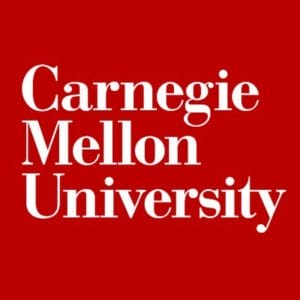
The prominent performing arts college added a Music & Technology degree program in 2009 to train students in the electrical engineering and computer science aspects of the industry.
While earning your B.S. in Music Technology, you’ll study everything from calculus to harmonies to Pro Tools software skills.
In the Master of Science in Music & Technology program, you direct your course of study by choosing an emphasis, such as technologically assisted composition or performance, computer music systems, or instrument design.
CMU is ready and prepared to provide a safe environment as you can read here. At the beginning of the spring 2024 semester, they maintained online teaching for the first 2 weeks before moving back to in-person courses. They even provide a link to monitor current cases and the history of cases both on campus and in the county in general.
Berklee College of Music
Location: Boston, Massachusetts
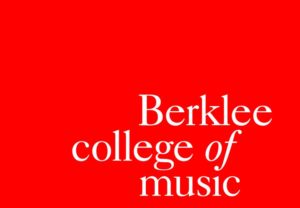
A Music Production and Engineering degree from the prestigious Berklee College of Music gives you access to award-winning mentors and premier recording studios that are filled with the industry’s latest equipment and open 21 hours every day.
You gain hands-on experience in everything from synthesis technologies to digital audio editing to producing music compositions.
Berklee Online also offers a Bachelor of Professional Studies in Electronic Music Production and Sound Design along with a variety of specialist, professional, and master certification courses.
Through Coursera, you can access their online courses with a free 7-day trial.
Berklee is a harder school to prepare for Covid with how many campuses there are as well as having international students. But they take the precautions between quarantining and health clearances for the safety of all on campus. Learn more by clicking here.
University of Massachusetts-Lowell
Location: Lowell, Massachusetts
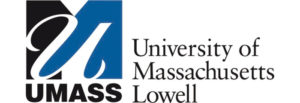
The Sound Recording Technology program is the largest division of the UMass Music Department. Notable recording, production, and broadcasting professionals lead the bachelor’s and master’s degree curriculum.
You train in a 1,200-seat concert venue, six recording studios, eight studio labs, and 30 practice rooms. A musical entrance audition is required. A combo bachelor/master’s degree can be earned in five years and comes with a technical or production concentration.
UMASS is requiring students to check a symptom checklist and if they are experiencing any of those symptoms, you are asked to stay home. They have a phone number and email available to students and faculty to contact health specialists with any questions or concerns. To see more details regarding their plans and requirements, click here.
The Los Angeles Film School
Location: Los Angeles, California
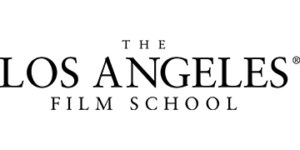
Earn your A.A.S. in Recording Arts in the heart of Hollywood’s entertainment industry. This 18-month program covers everything from live show productions to mixing a record to post-production for movies. Prominent industry insiders often stop by campus, and every student receives a loaded MacBook, professional mic, and headphones. You also graduate with your Avid Pro Tools certification.
As of January, their in-person instruction is on hold. This does not mean that it will remain that way for the rest of this semester or for fall 2024. To keep up to date on all information regarding Covid, click here
American University
Location: Washington, D.C.

Earn your B.A. in Audio Production or B.S. in Audio Technology at the nationally recognized American University. Both programs concentrate on sound synthesis and studio management, but you specialize in music, communication, computer science, or physics.
The combination of art and science along with seven on-campus studios provides a well-rounded education for making your mark in the audio engineering industry. The school also offers graduate certificates and master’s degrees in audio technology and production.
AU seems to be offering primarily online courses for their spring semester. They do not seem to have announced plans regarding the fall semester of 2024 yet, but to see what their current course of action is click here.
Georgia Institute of Technology
Location: Atlanta, Georgia
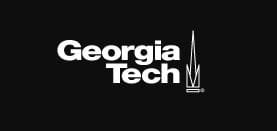
The Georgia Tech Center for Music Technology offers masters and doctoral degrees for innovative artistic and technological advancements. The research-centered department, which is part of the School of Music and the College of Architecture, provides industry-leading courses in robotic musicianship, music information retrieval, digital signal processing, and music theory to train the next generation of audio technologists.
Georgia Tech is ahead of the curve offering testing for Covid on campus as well as suggesting weekly testing. To learn about all of their measures and campus guidelines, click here.
University of Denver
Location: Denver, Colorado

One of the nation’s premier performance schools, the Lamont School of Music accepts only 300 students annually. Earning your B.M. in Recording and Production provides you with in-depth training in instruments, music theory, analog synthesis, and digital audio work. Classroom instruction is equally balanced with time in the three electronic and production studios. Students participate in more than 300 performances each year on campus and at regional festivals.
The University of Denver provides on-campus isolation and quarantine spaces for students. You can also keep up with the tests and cases on their Coronavirus Dashboard.
Drexel University
Location: Philadelphia, Pennsylvania

At the Westphal College of Media Arts & Design, you can earn a general B.S. in Music Industry degree but specialize in music technology and production. Since the program focuses on the industry and not performance, students do not have to audition. Music composition and audio production technique courses are balanced with the business and legal sides of the industry. You have access to six recording studios and two audio labs as well as a student-run concert production company and award-winning record label. Every student completes two summer co-ops with music-focused organizations. You can opt to attend school for a fifth year to complete your master’s degree.
Face-to-face instruction will begin on January 25 at Drexel. For all questions that students may have regarding Covid, there is a phone number and email available with all other Corona info available here.
Full Sail University
Location: Winter Park, Florida

A self-described “technological and creative playground,” Full Sail University supplies three audio engineering pathways that result in a B.S. in Recording Arts, Music Production, or Show Production. The Central Florida campus provides more than 110 studio and production environments, including Full Sail Live, a high-tech music venue.
Your training includes mixing on-stage sound for live bands, engineering artist recording sessions, and editing audio for student-developed shows and games. Full Sail’s online Audio Production courses let you earn your A.A. in 20 months.
Full Sail has an amazing online program and offers full courses that way. Students seem to have the option to return to campus for in person learning but they are keeping it at a voluntary level and not as a requirement.
University of Hartford
Location: Hartford, Connecticut

The majority of UH students are working toward their B.M. in Music Production and Technology. The four-year curriculum emphasizes acoustical and electronics engineering. The school believes that “the ideal music production professional should be a musician first and technician second,” so students must audition with a classical or jazz piece. More than 400 performances are recorded each year in the professional Hartt Recording Studio on campus.
The University of Hartford is on campus again with its own guidelines and resources that you can access here.
Conservatory of Recording Arts & Sciences
Location: Gilbert, Arizona
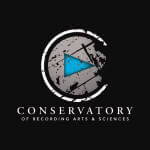
You graduate from this premier training program with proficiency certifications in 14 leading audio engineering hardware and software systems, including Logic Pro, Melodyne, Auto-Tune, and Pro Tools. Graduates often gain entry-level employment with broadcast, film, and video game companies.
Tuition includes a MacBook Pro equipped with progressive track recording software. The 42 credit program runs for 48 weeks on campus and through internships.
CRAS provides links to resources from both CDC as well as the Arizona Department of Health Services on the home page of their website.
Institute of Production and Recording
Location: Minneapolis, Minnesota
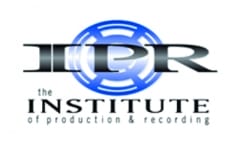
The IPR College of Creative Arts quickly trains you for a career in audio engineering. The A.A.S. in Audio Production and Engineering degree is centered on core musical concepts and technical skills with courses ranging from song arrangement and chord structure to advanced recording and editing techniques. A.A.S. degrees in Sound Design for Visual Media as well as Live Sound and Show Production are also available. The Minneapolis campus includes six labs and seven studios that are open 24 hours, which are available to new graduates for one year.
IPR can reopen a lot easier with its current state regulations and plans. That being said, they plan on starting their reopening plan as of June 1st. To learn more about it, click here.
Belmont University
Location: Nashville, Tennessee

Nestled in the nation’s country music industry, the Curb College of Entertainment and Music Business Department provides a B.S. and B.A. in Audio Engineering Technology. The science-slanted degree includes courses in circuit theory, hearing science, and audio engineering physics. The program requires students to complete a minor in a career-related discipline.
Belmont has put in every effort between the fall of 2020 and spring of 2021 to be able to reopen safely and continue in-person learning. With their sacrifices and hard work, they have begun their process which you can learn about here.
MI College of Contemporary Music
Location: Los Angeles, California

The Musicians Institute Audio Engineering Program provides a unique blend of small, hands-on classes with state-of-the-art equipment and recording spaces to prepare aspiring engineers for the demands of the audio industry. As an MI Audio Engineering major, you’ll learn how to function in today’s professional audio production environments – recording studios, venues, post-production houses, and/or film houses.
MI has begun their own particular online learning with an information session happening on February 11. Click here to learn how to be a part of it. to keep up to date with all Coronavirus updates with MI, check out this page.
Virginia Tech
Location: Blacksburg, Virginia
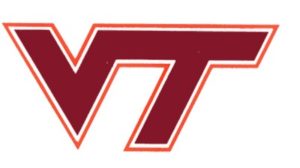
The School of Performing Arts Music Technology program has a 50-hour and 70-hour degree option. Both center on creative techniques in recording, production, and audio technologies. Each student develops a personalized course of study that caters to their specific interests. An off-campus recording studio offers 3,500 square feet of space filled with high-tech equipment.
Through their dashboard, Virginia Tech offers a way to monitor cases and testings on campus here. To keep up with their latest updates, take a look at their welcome dashboard.
Indiana University
Location: Bloomington, Indiana
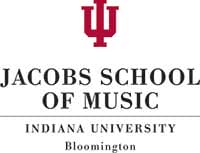
With the college’s Department of Recording Arts emphasis on hands-on production experience, only 15 students are admitted into the A.A.S. and B.S. programs annually. You will log more than 1,000 hours in the studio during your four years of study, work with the IU record label, and intern with the Jacobs School of Music performances.
IU has put together a list of resources for students regarding their health and wellness with Covid. To read through their listings, click here.
Texas State University
Location: San Marcos, Texas
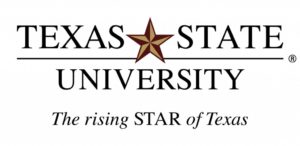
TxState’s College of Fine Arts & Communication offers a B.S. in Sound Recording Technology. The 120 semester hour courses range from music literature to mixing techniques to electronic instrumentation. Most classes meet off-campus at Fire Station Studios, a two-story space that includes a massive cutting room, video editing suite, isolation booth, and control room. Students must audition for the competitive program with a musical instrument.
All information regarding TSU’s roadmap and safety measures can be found here. They keep you up to date with daily reportings of both students and faculty.
Lawrence Technological University
Location: Southfield, Michigan

Your creativity and technical savvy-ness are challenged in this B.A. in Audio Engineering Technology program. After learning the fundamentals, you’ll advance to operating and maintaining modern recording equipment, multimedia components, and network systems. The off-campus recording studio and electronics lab equip you with the skills needed to use Pro Tools and MIDI for mixing, producing, and digital recording.
Currently, Lawrence Tech is offering a hybrid program of in-person and online learning as many other schools are. To read all of their updates and suggestions, click here.
University of New Haven
Location: New Haven, Connecticut

UNH offers a B.A. and B.S. in Music and Sound Recording, which are both grounded in music theory, musicianship, and sound recording technologies. The science components include electrical engineering, the physics of sound, and calculus classes. Professional instructors guide the small classes as you learn how to run a computer-based studio. The three campus studios feature professional-grade equipment that caters to beginners and advanced learners.
UNH has a readily updated dashboard with an alert level as well as information regarding their current spring semester available for all, here.
Academy Of Art
Location: San Francisco

Academy Of Art has its campus in the heart of San Francisco, long known for its culture and appreciation for the Arts. Their audio production degrees include associate, bachelor, and master’s degrees.
On top of that, their programs are available completely online. This is perfect in the current learning state of the world. They have already created a well-designed learning experience completely online.
Where To Go From Here
It is important to go to a school that specializes in audio engineering. Other schools will not have the latest technology, and if you are not working with the best tools, then you are not as familiar as you possibly can be with the tools that you would be working with at a prestigious studio.
Audio engineering is a field that is growing very rapidly. Be sure to weigh your options and find a school that is the best fit for you before enrolling.
Choosing the Right Audio Engineering School for You
By now, you’ve probably realized that there are plenty of options to study audio engineering in schools across the country. The real task is deciding which is the right one for you. All of the schools we’ve mentioned on this list are reputed, taught by industry experts, and are equipped with state-of-the-art sound technology.
But the real reason why students decide to go to a particular school is much more personal: though great teachers and equipment act as prerequisites. Before you get overwhelmed trying to choose from a list of seemingly perfect options: let’s get a better understanding of your own requirements.
Location
This doesn’t apply to just audio engineering: most students select their school based on the city/state they want to move to. In some cases, it’s close to home, and sometimes as far as possible. However, there’s more to a location since you’re planning to study audio engineering. If you aim to work in famous professional recording studios, you know the importance of networking in audio engineering society.
Choose a school that is ideally in a city where there’s a strong music performance and sound production culture. For example: if you plan to move to LA after school, it may not be the wisest idea to study in Tennesee. The networking you do with your fellow students and teachers in a school will be most effective in the same city, as you’ll get to form connections with the professionals in the industry closest to you. Moving to a completely different city than the one you studied in will invariably mean that you have to start afresh with your networking.
However, this isn’t a rule set in stone. There are plenty of audio engineers who are successful by merit of their experience and skills in audio post-production alone, without having to bank on their network connections.
We make the argument that it can’t hurt to have both — a bachelor’s degree in audio engineering from a top school as well as a strong network of music producers, audio engineers, sound engineers to help your launch into the music business.
Access to Equipment
Every school claims that they have all the latest sound equipment to give their students the right exposure and experience: but there isn’t always an equal playing field.
There’s a big difference between having recording technology on campus and students having the opportunity to work with this sound recording technology all the time.
Sound equipment is expensive and is constantly being revamped in the industry: and it isn’t always feasible for some schools to restock on new recording technology every year. However, that puts their new students at a disadvantage: who graduate well-versed in audio production tools and audio engineering technology that the music industry has long moved on from.
You should find out the specifics of the audio production equipment that’s available in the school, and also take a look at the music production curriculum. Looking at the curriculum can be key to understanding how much time is really allocated towards working hands-on with audio technology, and how much is allocated towards learning theory in a classroom.
Your exposure to digital audio workstations is important and will play a big role in preparing you for the live sound production career ahead of you.
Talk to Alumni and Faculty
There’s no better way to do your background check before you take the plunge on a music degree in a recording school than to actually speak to the students who went there before you. And no, reading testimonials from a brochure is definitely not enough — if you want authentic insight about the audio engineering degree experience, you’ll need to snoop around and track them down! Most schools will proudly claim their alumni if they’ve made it big in the music industry and recording industry.
If you read reviews before going to a restaurant, there’s no reason why you shouldn’t take the time to find out what the audio engineering classes and experience will be like from someone who went there. Focus on the recording techniques they picked up, their career as a music producer, and how their bachelor’s degree in audio engineering helped them achieve this.
Worst case scenario, they don’t provide valuable insight but you’ve done some valuable networking.
Conclusion
No matter what you choose, there are few better ways to launch yourself into the music industry than arming yourself with an audio engineering degree from one of the top audio engineering schools in the country. And even though the journey ahead can’t be easy, we’re sure you’re going to gain valuable audio engineering skills and become a music producer to reckon with. Good luck!
Further Reading:
Philip had the founding vision for Audio Assemble, previously known as Pro Tools Tutorial. In 2008 Philip began recording and producing songs and had a hard time finding free and accurate information on Pro Tools software. From there the website was born. Philip currently works as a Software Engineer for Amazon and handles the editorial strategy as well as much of the technical aspects of Audio Assemble’s website.
